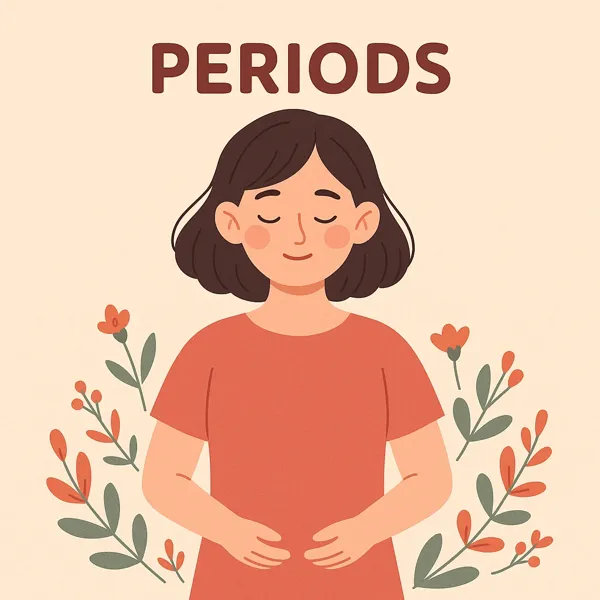What Are Periods? A Simple Guide

Periods, also known as menstruation, are a natural part of the female body’s monthly cycle. It’s something every girl and woman goes through once they reach puberty — and although it can feel confusing at first, it's just your body’s healthy way of preparing for the possibility of pregnancy.
Let’s take you through the full journey, from start to end, in the easiest way possible.
1. It All Starts in the Uterus
Inside your body is an organ called the uterus — this is where a baby can grow if a woman gets pregnant. Every month, your uterus prepares itself for pregnancy by building a soft, thick lining made of blood and tissue. This is called the endometrium.
At the same time, your ovaries release an egg — this process is called ovulation.
2. ❌ No Pregnancy? The Body Clears the Lining
If the egg doesn’t meet a sperm (which means no pregnancy happens), your body realizes that it doesn’t need the extra lining anymore.
So what does it do?
It sheds it — this is what we call a period.
The uterus lining — made of blood, mucus, and tissue — breaks down and flows out of your vagina, usually over 3 to 7 days. This is your menstrual bleeding.
3. What Does Period Blood Look Like?
The flow is a mix of:
Blood (bright red, dark red, or brown)
Uterine lining
Natural mucus and fluids
Everyone’s flow is different. Some have heavy bleeding, others light. Some feel cramps, others don’t. It’s all normal — just part of your unique cycle.
4. Then the Cycle Starts Again
Once your period ends, your body starts preparing again. A new lining begins to grow, and another egg matures. If that egg isn’t fertilized again — guess what? You get your next period.
This whole cycle — from one period to the next — usually takes about 28 days, but it can vary between 21 to 35 days, especially in teenagers or those with irregular cycles.
5. When Do Periods Start and Stop?
First Period (Menarche): Usually between ages 9 to 15
Last Period (Menopause): Around age 45 to 55
In between, periods are a monthly part of life — a sign that your body is working just as it should.
6. Taking Care of Yourself During Your Period
During your period, it’s important to:
Use clean sanitary pads or period products
Change pads every 4–6 hours
Stay hydrated and eat well
Rest if you feel tired or crampy
Talk to someone if your period feels uncomfortable or overwhelming
Final Thoughts
Your period is not dirty, shameful, or weird — it’s a powerful reminder that your body is strong, healthy, and beautifully natural. The more you understand it, the more confident and prepared you’ll feel.
At Napquina, we’re here to support you with comfortable, absorbent sanitary pads that help you move freely and confidently — because periods should never hold you back.
